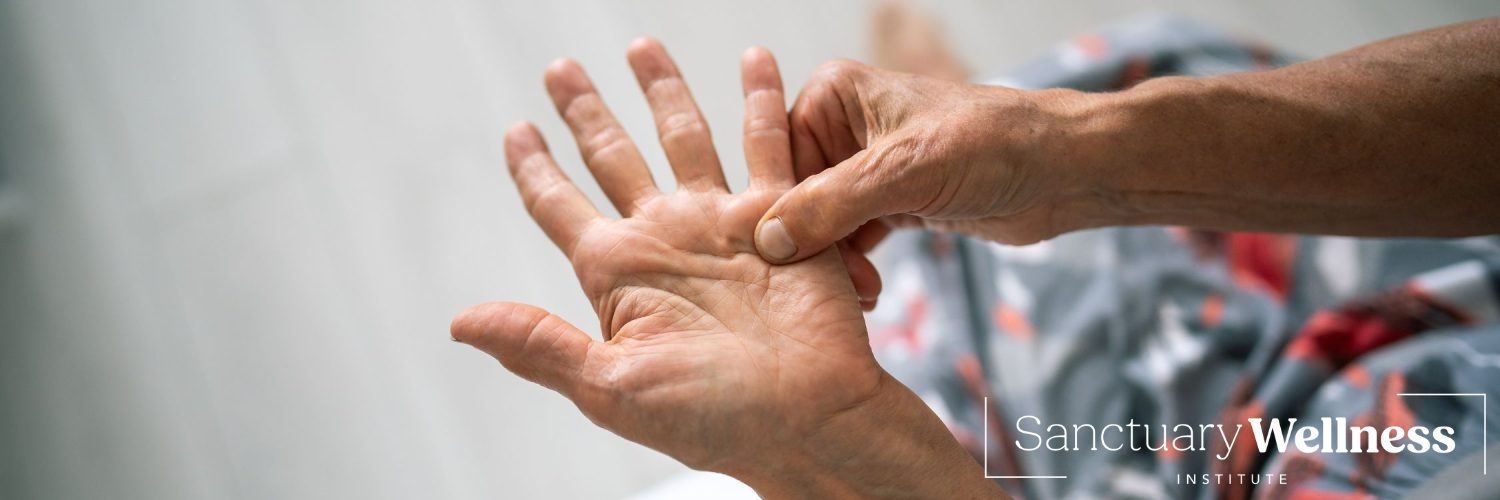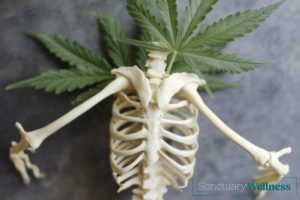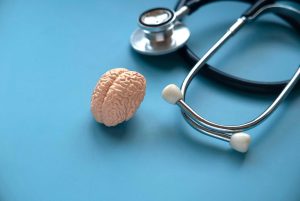Marijuana for Corticobasal Degeneration
- Nicholas DiBella
- Published: October 15, 2024
- Fact-checked by Dr. Desiree Granados

Corticobasal degeneration (CBD) is a rare, progressive neurodegenerative condition that impacts movement, cognition, and behavior. As with many complex neurological conditions, traditional treatments offer limited relief for managing symptoms, leading many patients to explore alternative therapies like medical marijuana.
Emerging evidence suggests that cannabis may potentially help alleviate some of the most troubling symptoms associated with corticobasal degeneration, offering a path to improved quality of life for those affected.
Does Marijuana Help With Corticobasal Degeneration?
Medical marijuana has shown promise in managing the symptoms of corticobasal degeneration by potentially addressing issues like muscle stiffness, spasms, and chronic pain. Although there is no cure for corticobasal degeneration, studies on medical cannabis for neurodegenerative disorders suggest it may provide symptom relief through its anti-inflammatory and neuroprotective properties.
Cannabinoids, the active compounds in marijuana, interact with the body’s endocannabinoid system, which plays a role in regulating functions such as pain, motor control, and mood.
Some patients with conditions similar to corticobasal degeneration, such as Parkinson’s disease and multiple sclerosis, have experienced symptom relief with medical marijuana. Research into cannabis for neurodegeneration is ongoing, but many patients find it helpful in managing pain, reducing muscle rigidity, and improving sleep quality.
What is Corticobasal Degeneration and What Are Its Symptoms?
Corticobasal degeneration is a rare neurodegenerative disease that affects the brain’s cortex and basal ganglia, leading to difficulties in movement, cognition, and speech. Symptoms often begin on one side of the body and worsen over time. These can include:
- Muscle stiffness or rigidity
- Difficulty with motor tasks such as writing or buttoning clothes
- Tremors or uncontrolled movements
- Difficulty with speech or swallowing
- Cognitive issues, including memory loss and difficulty with problem-solving
Corticobasal degeneration progresses slowly, and as the disease advances, symptoms typically spread to both sides of the body, significantly impacting an individual’s quality of life. Currently, no cure exists, and conventional treatment primarily focuses on managing symptoms through medications like muscle relaxants or physical therapy. However, the effectiveness of these treatments varies, prompting many to explore alternative options like medical marijuana.
Can You Get a Medical Marijuana Card for Corticobasal Degeneration?
Currently the only state that lists corticobasal degeneration as a qualifying condition for medical marijuana is Iowa. However, neurodegenerative diseases are also listed as qualifying conditions in Pennsylvania and Texas. Additionally, half of the states in the U.S. list chronic pain as a qualifying condition, which may apply to individuals with corticobasal degeneration.
In states such as New York, Virginia, and Washington D.C., where corticobasal degeneration isn’t specifically listed, patients may still qualify if a doctor approves its use for managing symptoms.
At the Sanctuary Wellness Institute, we offer services to help patients obtain a medical marijuana card in a variety of states. With doctor approval, many individuals can access medical cannabis to alleviate symptoms associated with corticobasal degeneration.

How to Use Marijuana for Corticobasal Degeneration?
There are several ways to use medical marijuana to manage symptoms of corticobasal degeneration. Popular methods include:
- Smoking or Vaping: For those who can tolerate it, inhaling cannabis offers the quickest relief, making it an ideal option for managing acute symptoms like muscle stiffness or spasms.
- Edibles or Oils: Edible forms of marijuana, such as gummies or oils, offer longer-lasting effects, which may help with ongoing pain or sleep difficulties. These options are also ideal for individuals who have trouble smoking due to respiratory issues or other health concerns.
- Topicals: Cannabis-infused creams or balms can be applied directly to painful muscles or joints, offering localized relief without psychoactive effects.
To learn more about which consumption method might be right for you, check out our page on Edibles vs. Smoking. Consulting with a medical marijuana doctor is crucial for determining the best method for managing symptoms of corticobasal degeneration, as dosage and consumption methods can vary based on individual needs.
What are the Best Marijuana Strains for Corticobasal Degeneration?
Certain strains of marijuana may be more effective in managing specific symptoms of corticobasal degeneration. Patients often find relief with strains that provide relaxation and pain relief without excessive sedation. Some popular strains include:
- ACDC (High Cannabidiol): Known for its high CBD content and minimal psychoactive effects, ACDC is ideal for reducing pain and inflammation while allowing patients to remain alert.
- Granddaddy Purple (Indica): This strain offers deep relaxation and may help with sleep disturbances and muscle stiffness.
- Harlequin (High Cannabidiol): Like ACDC, Harlequin has a higher CBD ratio, making it suitable for managing pain and anxiety without causing significant intoxication.
For more information on the differences between indica and sativa strains, check out our indica vs. sativa guide.
Conclusion
While there is no cure for corticobasal degeneration, medical marijuana offers a promising alternative for managing the symptoms of this progressive condition. By reducing pain, muscle rigidity, and improving sleep, cannabis may help individuals with corticobasal degeneration regain some quality of life.
If you are interested in exploring medical marijuana as a treatment option for corticobasal degeneration, The Sanctuary Wellness Institute can help you obtain a medical marijuana card and guide you through the process.
States Where We Offer Medical Marijuana Card Services
How we reviewed this article:
- Suzanne Nielsen, Bridin Murnion, Gabrielle Campbell, Helen Young, Wayne Hall (2019). Cannabinoids for the treatment of spasticity
https://onlinelibrary.wiley.com/doi/full/10.1111/dmcn.14165 - Kylie O’Brien, Justin Beilby, and David Nutt (2023). Medicinal cannabis for pain: Real-world data on three-month changes in symptoms and quality of life
https://journals.sagepub.com/doi/full/10.1177/20503245231172535 - Cleveland Clinic (2022). Corticobasal Degeneration
https://my.clevelandclinic.org/health/diseases/22522-corticobasal-degeneration - Leafly (2024). ACDC
https://www.leafly.com/strains/acdc - Leafly (2024). Granddaddy Purple
https://www.leafly.com/strains/granddaddy-purple
Current Version
October 15, 2024
Written By
Nicholas DiBella
Fact-checked By
Dr. Desiree Granados
Editorial Process
Our Editorial Process

Nicholas DiBella received his psychology degree from West Chester University of Pennsylvania and has been writing content for the Sanctuary Wellness Institute since 2023. He is passionate about all things health & wellness.







